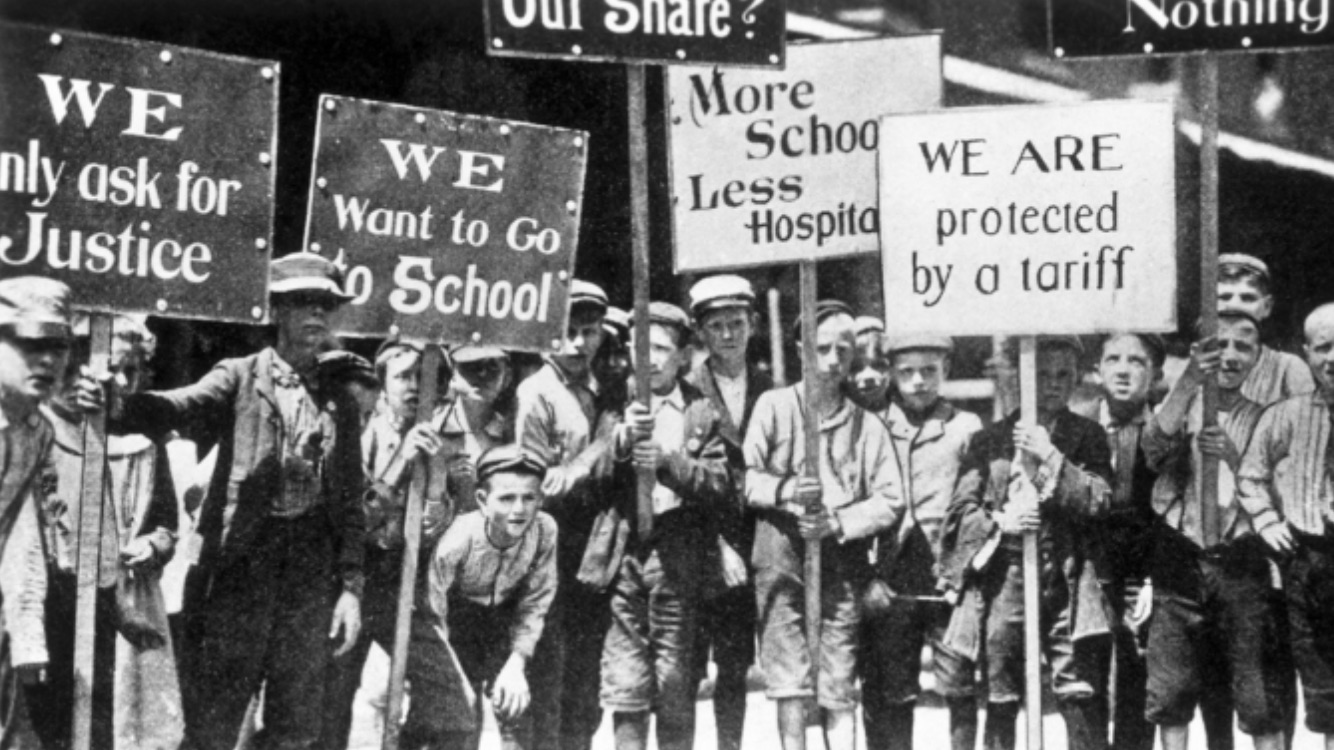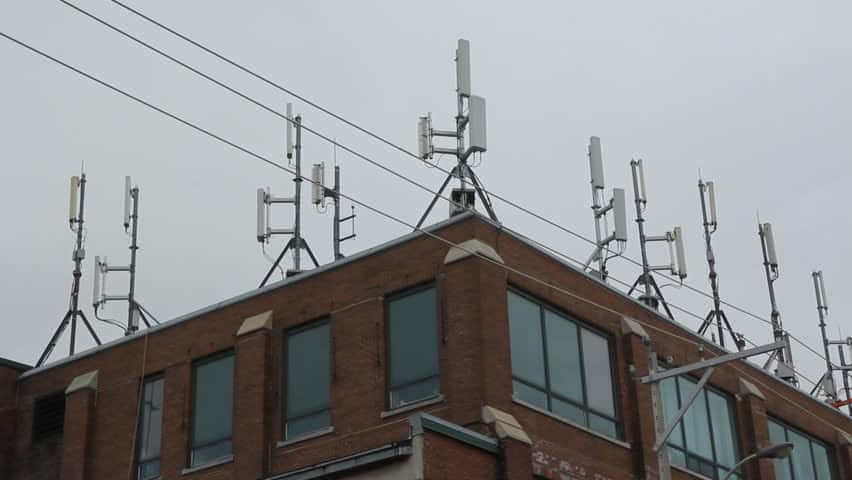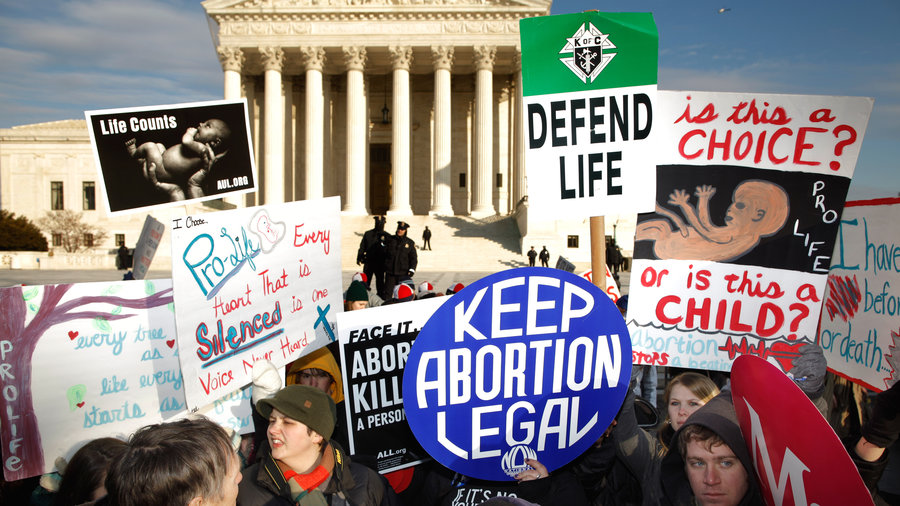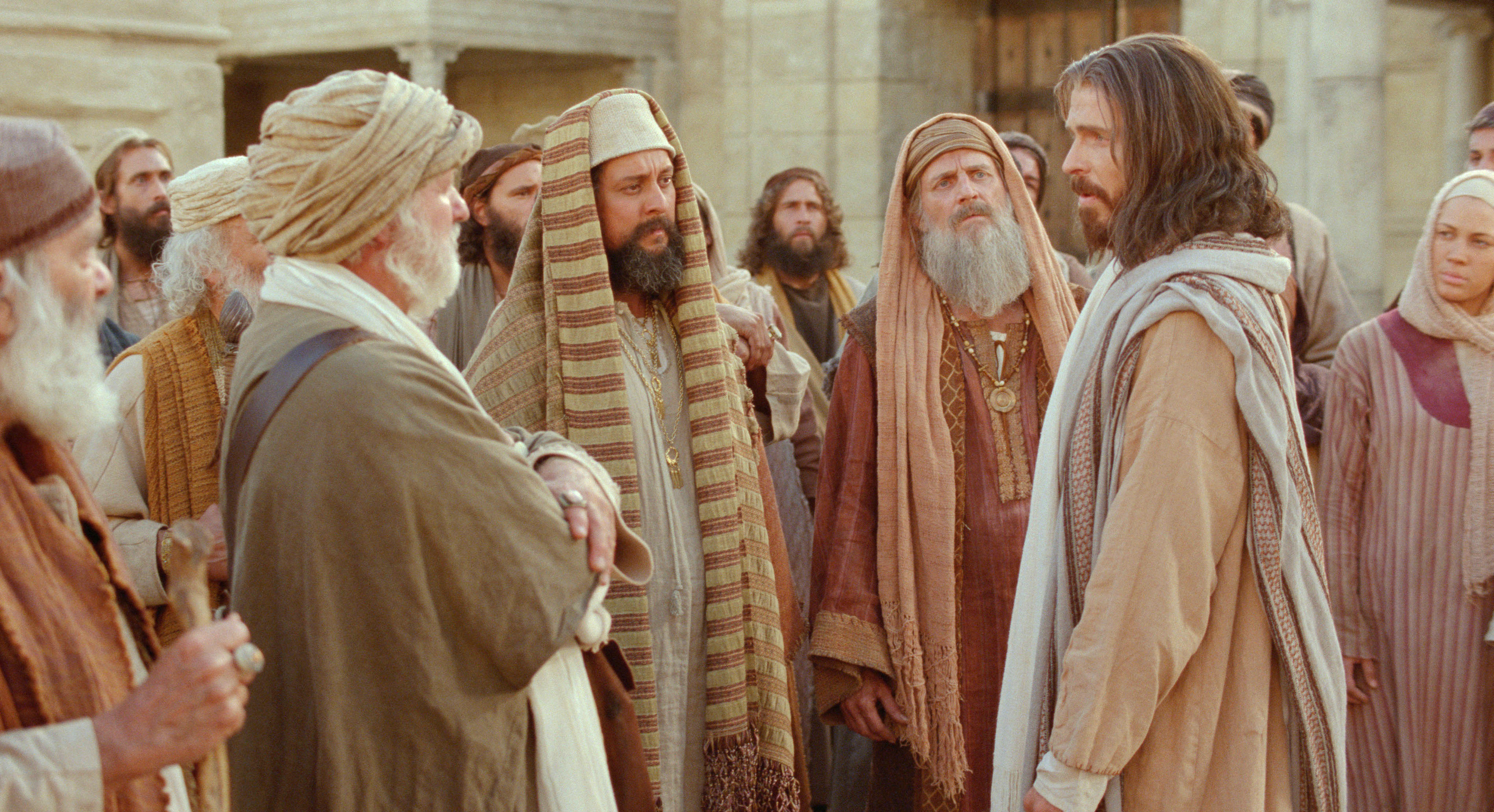
The call to pay reparations to descendants of black American slaves boils down to two basic arguments. The first is that black slaves (as well as blacks living since slavery ended) suffered so severely that their descendants deserve to get paid for it. The second is that today’s black Americans would be so much wealthier if only their ancestors had been paid like white workers were.
Anybody who believes that these arguments justify billions or trillions of dollars of reparations paid to black Americans, while denied to other Americans, should read the autobiography of labor activist Mary Harris “Mother” Jones, which shows how white American industrial workers of the late 1800s and early 1900s suffered every bit as bad as black American slaves and also were paid too little to pass anything to future generations. The fact that white industrial slaves suffered as much as black slaves is proof that our nation’sstruggle (and the world’s) has always been a class struggle far more than a racial one.
I recommend this book, not only because it is short, but because it was written by somebody who witnessed these things personally. But if you don’t have time for the book, or you would like a preview, here are some important quotes that will help you understand a more complete American history. I have divided them up by category.
Those who support black slavery reparations will argue, before even reading this article, that none of it matters because white Americans “chose” to suffer these things or “chose to come here [America],” that they were not forced to work or brought here against their will. So let me address that first, before we get into the details.
Did whites have a choice?
Page 40: “In a single block in Kensington… Mothers of 22 children under 12 explained it [oppressive child labor] was a question of starvation… That the fathers had been killed or maimed at the mines.”
Viewpoint: The reality is that their “choice” was between starvation and working in agonizing conditions. They didn’t get free food, shelter, and basic healthcare, like black slaves did. They lived in a world of corporate dependency in which they lacked the means to provide for themselves, so they were fully dependent upon those who possessed the means. If those who possessed the means severely oppressed them, they had no choice but to endure it.
Page 5: “From 1880 on… The enormous immigration from Europe crowded the slums, forced down wages, and threatened to destroy the standard of living fought for by American working men.“
Page 14: “There was always a surplus of immigrant labor, solicited in Europe by the coal companies, so as to keep wages down to barest living… 14 hours a day was not uncommon… Families lived in company-owned shacks that were not fit for their pigs. Children died by the hundreds…”
Viewpoint: These passages counter the reparationist’s argument that “white people chose to come here,” meaning that Europeans liked American industrial labor conditions so much that they chose to cross the ocean to suffer them.
While Mother Jones herself was an immigrant, and she consistently stood for the rights of both immigrants and native-born laborers, she couldn’t help but tell the truth that too much immigration had decimated the lives of working class Americans, even those whose families had been here for decades, to the point that they were no better off than black slaves had been.
Furthermore, American industry, in this case the coal companies, deceived Europeans into coming to America with promises of secure jobs and good housing, only for them to find themselves used as scabs to break a strike and then left unemployed and homeless.
Page 132: “Organizers would come in with bandages on their heads… Foreigners were forever rushing in with tails of violence. They did not understand. Wasn’t this America? Hadn’t they come to America to be free?”
Viewpoint: Those immigrants who “chose to come here” sought late 1700s constitutional liberty, only to find that it had been crushed by late 1800s corporate tyranny. With no means to provide for themselves, they had no choice but to suffer this tyranny or suffer starvation.
Just as bad as slavery, if not worse
Page 3: “…the ‘blues’ and the ‘grays’…before had been fighting each other over the question of chattel slavery. They decided that the time had come to formulate a program to fight another brutal form of slavery —industrial slavery.”
Viewpoint: Mother Jones, whose father brought her from Ireland to Memphis in the 1830s as a child, witnessedboth black slavery and the suffering of white industrial workers in the late 1800s. She had no reservations about calling what white industrial workers suffered “brutal slavery.”
Page 45: “50 years ago, there was a cry against slavery and men gave up their lives to stop the selling of black children on the block. Today, the white child is sold for two dollars a week to the manufacturers.”
Viewpoint: Reparations activists are trying to rewrite history by saying that Northern soldiers did not want slaves to be free; they just wanted the Union to stay together. Yet, Mother Jones, who lived through the Civil War, tells us otherwise. And she also recognized the parallel between black slavery and white slavery, that it was just a technical difference, not a practical one.
Page 18: “We were all living on dry bread and black coffee. I slept in a room that never had a fire in it, and I often woke up in the morning to find snow covering the outside covers of the bed.”
Viewpoint: The book, “There is Power in a Union” by Philip Dray, also share stories of white industrial workers living on nothing but dry bread and black coffee. Their food was every bit as meager, if not more meager, than that of Black slaves who had to be fed enough to remain alive and able to work. And if there was snow on their blankets, their shelter was clearly no better, either.
Page 80: “[Mostly white] miners worked 12 hours a day in the mills and smelters and mines, in the midst of sickening, deadly fumes of arsenic. Arsenic poisons. It paralyzes arms and legs. It causes the teeth to fall out, the hair to fall off. Weird looking men worked in the mines; gaunt, their faces sunken in, their eyelashes and eyebrows off, a green aspect to their skin.”
Viewpoint: Sounds worse than a black slave working in a field or plantation mansion.
Page 139: “All the world’s history has produced no more brutal and savage times than these.”
Viewpoint: This statement comes towards the end of Mother Jones autobiography in which she sums up what she believed to be the worst brutality in world history. To be fair, she did not witness most of world history. But she did witness black American slavery, having spent her teens and 20s in Memphis during the 1840s and 1850s. She witnessed both. And she insisted that white industrial slavery was the most brutal. I’ll take her word any day over modern day historians who witnessed neither.
How white industrial slavery worked
Page 89:“The miners had been peons for years, kept in slavery by the guns of the coal company, and by the system of paying in scrip, so that a miner never had any money should he wish to leave the district.”
Page 55: “[White coal miners] we’re in practical slavery to the company, who owned their houses, owned all the land, so if a miner did own a house, he must vacate whenever it pleased the land owners. They were paid in scrip instead of money so that they could not go away if disatisfied. They must buy at company stores atcompany prices.”
Viewpoint: Mother Jones uses a key term here – “practical slavery.“ The technical slavery of owning another person and forcing them to work while providing for them food, shelter, and basic healthcare had been abolished. Therefore, corporations created a practical slavery where they paid predominantly white workers so little that they struggled to afford the levels of food and shelter that black slaves had received for free; and if the workers and their children died from malnutrition, exhaustion, or workplace injuries, they were simply replaced with the next immigrant off the boat. If the workers wanted to leave their slave like conditions, they could not afford to buy as little as a piece of dry bread once they left the company town, because the scrip that they had been paid could only have been spent at the company store in the company town they escaped. It was practically slavery, with just a few twists.
Page 58: “[Striking Colorado] miners were evicted from their company-owned houses. They went out on the bleak mountain sides, lived in tents through a terrible winter with a temperature below zero, with 18 inches of snow on the ground. They tied their feet in gunnysacks and lived lean and lank and hungry as Timberwolves.”
Viewpoint: Another example of “practical slavery” is being threatened with homelessness, starvation, and death from exposure in the event that white and Hispanic workers displeased their corporate masters.
Page 74: “The family had to run up a debt [to their company] of $30 for [their father’s] funeral. Year in and year out they toiled to pay back to the Company store the indebtedness. Penny by penny they wore down the amount. After food and rent were deducted from the scanty wages, nothing remained. They were in thralldom [a Norse word for “slavery”] to the mill.”
Viewpoint: This quote perfectly refutes the pro-reparations argument that had slaves been paid, black Americans today would inherit “generational wealth.” We see here that white industrial “slaves” were paid so little that there was nothing left to pay their father‘s funeral, let alone pass down to descendants.
Furthermore, we see in this quote the technical work around that enabled white industrial slavery. Corporationspaid their workers so little that workers had no choice but to borrow money from the company for so little as their father‘s funeral, and then they would spend the rest of their lives unable to leave their jobs, because they were in bondage to the company as long as they owed debt .
Mother Jones goes on to say that she had to steal this family out of town during the night, making sure that the wheels of the stage coach were properly oiled so that they made no noise, lest she get caught carrying these white slaves away to freedom.
Page 122: “An explosion! Whose husband was killed? Whose children were fatherless?
‘My God, how many mules have been killed!’ was the first exclamation of the superintendent.… New mules had to be bought. They cost the company money. The human life is cheap, far cheaper than mules.”
Viewpoint: Here, Mother Jones mentions a reality that made white industrial slavery far deadlier than black American slavery. While black slave owners may not have respected their slaves, the slaves were of significant financial value to them. They needed black slaves to stay alive and healthy enough to work or be sold; therefore, black slaves often received better food, shelter, and basic healthcare than many white industrial slaves. A dead black slave was a major financial loss to the owner, even if it was a child; they cost money to replace. The same was true with mules in industry. But a dead white industrial worker or dead child of a white worker cost the corporate tyrants nothing; they could simply replace them with the next immigrant off the boat (and there were many of those), since they had invested nothing in the human beings themselves. That’s the main reason why white American industrial workers died at approximately twice the rate of English industrial workers, according to the numbers “The history of workplace safety in the United States” at eh.net.
Child labor conditions
Page 76: “A breaker boss watched the boys. He had a long stick to strike the knuckles of any lad seen neglecting his work. The fingers of the little boys bled onto the coal. Their nails were out to the quick.”
Viewpoint: Reparations proponents often argue that they are owed a debt because black slaves were beaten. Well, it turns out that white industrial slaves were also beaten, while their jobs simultaneously mutilated them. It wasn’t just those adults who joined unions, but also those children being driven to work harder..
Page 40: “I put the little boys with their fingers off and hands crushed and maimed on a platform. I held up there mutilated hands and showed them to the crowd and made the statement that Philadelphia’s mansions were built on the broken bones, the quivering hearts, and drooping heads of these children.”
Viewpoint: Mother Jones made this statement in reference to the 1903 Kensington Philadelphia child labor strike. It included over 10,000 children. There’s a children’s book about it called, “Mother Jones and her Armyof Mill Children.”
As of 1910, only 5% of Philadelphia was black. It was almost entirely White children, not Black children, who “built” Philadelphia. Reparations activists effectively urinate on the graves of these children by saying that it was Blacks who “built America.”
Page 37: “I said to the father, ‘What is wrong with your girl?’ ‘Consumption,’ said he. ‘I couldn’t earn enough in the mines, and she went to work in a boarding house. They worked her so hard she took a sick – consumption.’…He went home and when he opened the door, his sick daughter said, ‘Father, you have lost your job.’ She started to sob. That brought on a coughing fit from what she fell back on the pillow exhausted – dead.’”
Viewpoint: Black slave children didn’t have to worry about their parents losing their jobs and starving as a result. Some aspects of black slavery were worse than white industrial slavery; some aspects were better.
Page 70: “Little girls and boys, barefooted, walked up and down between the endless rows of spindles… Tiny babies of 6 years old with faces of 60 did an 8 hour shift for $.10 a day. If they fell asleep, cold water was dashed in their faces… At lunch, the children would fall to sleep… on the bare floor… Sleep was their recreation.”
Page 72:“How long do they [children ages 6 to 10] work? From six in the evening till six come morning… $.10 a night… They stumbled out of the heated atmosphere of the mill, shaking with cold as they came outside… They die of pneumonia, these little ones, of bronchitis and consumption [that’s when your job exhausts you to death].”
Viewpoint: To give you some idea of what $.10 bought in the late 1800s, a pound of rice, which is about 1300calories, cost 5-10 cents, depending on the state. A dozen eggs could cost over $.30 (according to photocopies of old documents I researched at libraryguides.missouri.edu). That should give you some idea of how severe the poverty was for these children. Clearly, what they could afford was no better than what Black slaves had been given for free. Worse yet, they were killed and maimed by their jobs at much higher rates than black slave children.
Page 72: “I went from Tuscaloosa to Selma, Alabama, and got a job in a mill. I boarded with a woman who had a dear little girl of 11 years working in the same mill with me. On Sunday, a group of mill children were going out to the woods. They came for Maggie…
“Get up, Maggie, the children are here for you to go to the woods. Oh, mother, just let me sleep; that’s a lot more fun. I’m so tired. I just want to sleep forever.”
The next day she went to the mill as usual. That evening at 4 o’clock, they brought her home and laid her tiny body on the kitchen table. She was asleep – forever. Her hair had caught in the machinery and torn her scalp off.”
Viewpoint: Various historical sources, including the CDC, have stated that 20,000 to 30,000 overwhelmingly white workers died from their jobs annually in the late 1800s and early 1900s. A significant number of these were children. Black slaves suffered not even a fraction of such high mortality, because tending crops and working in plantation mansions was far less dangerous than working in coal mining, silver mining, steel, high rise construction, textile mills, and railroad (the latter of which surprisingly killed 10,000 people per year).
White industrial civil rights atrocities
Page 130: “If I were to stop to talk to a woman on the street about her child, a cossack would come charging down upon us and we would have to run for our lives. If I were to talk to a man in the streets of Braddock, we would be arrested for unlawful assembly.”
Viewpoint: Even the most basic American rights, freedom of speech and freedom of assembly, were prohibited for predominantly white industrial workers trying to organize for bearable hours, livable pay, and safe conditions.
Page 54:“Shopkeepers were forbidden to sell to miners. Priests and ministers were intimidated, fearing to give them consolation. The miners opened their own stores to feed their women and children.”
Viewpoint: As a result of the Fugitive Slave Act of 1850, northern white Americans were prohibited from aiding or feeding any Black American who had escaped southern slavery. And in the decades that followed the Civil War, black Americans had to form their own towns to be able to provide for themselves. Thanks to quotes like this, we know that white union workers suffered the same thing.
Page 95: “The militia… forbade all meetings [of white miners]. They suspended every civil right. They became despotic. They arrested scores of miners, tried them in military court, without jury, sentenced them to 10, 15 years in the Moundsville prison.”
Viewpoint: How could white workers have “every civil right” suspended if it was only blacks who lacked civil rights? Because it was the working class of all races who lacked civil rights.
Page 6: “The police without warning charged down upon the workers, shooting into their midst, clubbing right and left. Many were trampled under horses’ feet. Numbers were shot dead. Skulls were broken. Young men and girls were clubbed to death.”
Viewpoint: No, these were not Black Americans marching for civil rights in Selma. These were white industrial workers marching for livable working conditions in Chicago. All races have suffered severe police brutality. But today’s anti-white media hides stories like these in an attempt to convince Americans that our struggles have been racial rather than class-oriented.
Page 8: “The leaders of the eight hour day movement were hanged on Friday, November 11 [1886]”
Viewpoint: Reparations proponents often argue that white people were not hanged like black slaves were. They are lying. White people were regularly hanged. And many of them did not receive a constitutional trial, like the Molly Maguires, for example.
Page 35: “Men who joined the union were blacklisted throughout the entire section. Their families were thrown out on the highways. Men were shot. They were beaten. Numbers disappeared and no trace of them were found. Storekeepers were ordered not to sell to union men or their families.”
Viewpoint: Woke liberals would have us think that these crimes against humanity only happened to black Americans. The truth is that White workers suffered similar brutality and discrimination.
Page 63: “strikers were arrested for vagrancy and worked in chain gangs on the street under brutal soldiers…Men, women, and tiny children were packed in the bullpen at Cripple Creek. Miners were shot dead as they slept.”
Page 115: “Oh mother, did you hear how they are arresting miners for vagrancy, for loafing, and making them work in company ditches without pay, making them haul coal and clear snow up to the mines for nothing!”
Viewpoint: Those who cry for Black slavery reparations sometimes make the argument that Black Americans were enslaved well into the 1900s by means of arresting them for vagrancy and forcing them to work on chain gangs as unpaid laborers. That may be true, but it was also true for white industrial workers who unionized.Therefore, the descendants of white prison slaves should not have to fund the descendants of the black prison slaves.
Page 97:“… Deputies and guards drove an armored train with Gatling guns through the tent colony of the miners, while they were sleeping. Into the quiet tents of the workers the guns were fired, killing and wounding the sleepers.… No one was arrested.”
Page 115: “Oh, mother, did you hear how the soldiers entered Mrs. Hall’s house, how they terrified the little children, wrecked the home, and did worse – terrible things – and just because Mr. Hall, the undertaker, had buried two miners whom the militia had killed!”
Viewpoint: Again, we are misled into believing that police brutality is a racial problem. The truth is it has primarily been a class problem in American history.
Page 117: “the militia… machine guns began spraying the flimsy tent colony, the only home the wretched families of the miners had, spraying it with bullets… The little Snyder boy was shot through the head, trying to save his kitten. A child carrying water to his dying mother was killed.… And dug out under a burned tent, the charred bodies of 11 little children and two women were found – unrecognizable… Slaughtered tiny babies and defenseless women. Done by the order of Lieutenant Linderfelt, a savage brutal executor of the will of the Colorado Fuel and Iron Company.”
Viewpoint: This quote speaks of the Ludlow massacre of 1914. More than a few dozen white (and perhaps some Hispanic) workers were massacred by the Colorado state militia serving the will of a coal company.
Altogether, there have been over 100 strikes in American history in which a total of over 1000 predominantly white workers were killed. But in this case, families were killed, too.
If you haven’t heard of these, that’s because the Republicans don’t want you to know what a living hell America was when corporations could do whatever they wanted while the government shot strikers on their behalf, and the Democrats don’t want you to know that white industrial workers suffered every bit as bad as black slaves, thus proving that our primary struggle has been a class struggle that is today misrepresented by woke liberals as a racial struggle, so that Black Americans may receive never ending preferential treatment at the expense of descendants of working class whites who are to receive never ending discrimination.
Page 80: “In 1899 the Bunker Hill company mine was blown up. The governor called the troops which only made matters worse. The first troops were Negroes. [white] Men were arrested and thrown in jail without trial. 1000 [white] men were herded into a bullpen.”
Viewpoint: If black militias mistreated white workers, do they owe white workers reparations?
Not only do I hope that these quotes from Mother Jones have educated you on how the media has misrepresented America’s historical class struggle as a race struggle, but I also really hope you share this article with others online. Mother Jones’ stories need to be heard by an America that has turned a deaf ear to her. Why have they done this? Here’s a possible reason:
Page 57: “I know no east or west, north or south when it comes to my class fighting the battle for justice.“
Viewpoint: Throughout her autobiography, Mother Jones repeatedly places her identity in her class — the working class. Even though she was a woman of Irish descent, she fought for every working class man, woman, and child, regardless of whether they were Irish, Italian, Polish, German, Mexican, or otherwise.Perhaps that’s why social liberals largely ignore her accomplishments today. They prefer leaders who look out only for their own gender or race.
— by K. Scott Schaeffer — Author of the book, “Ending Racism against White Americans: a Christian case for individually quality and a post-racial future.”


 …
… Below are several pages of short anti-abortion arguments that I wrote during the COVID-19 stay-at-home crisis. I encourage you to print these and distribute them to anyone you know FREE of charge, either in their entirety or by picking the ones you like best (you may also include them in literature you create yourself, although citing my name on the quote would be preferred).
Below are several pages of short anti-abortion arguments that I wrote during the COVID-19 stay-at-home crisis. I encourage you to print these and distribute them to anyone you know FREE of charge, either in their entirety or by picking the ones you like best (you may also include them in literature you create yourself, although citing my name on the quote would be preferred).




